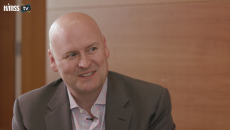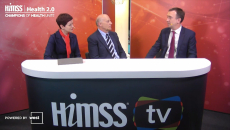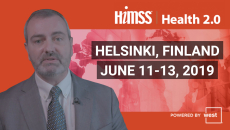Meaningful Use
Five top electronic health record systems experts offer healthcare C-suite executives and IT leaders some valuable best practices for getting the most out of their EHR investments.
The right data needs to be collected for the right purpose, says Health Enovation CEO Grace Lee, who shares why patients should not just have control of their data but be rewarded for sharing it.
Watch the first day of our livestream of interviews with healthcare IT industry luminaries, thought leaders and innovators from AsiaPac19 in Bangkok, Thailand.
Truly impactful innovations are those that understand and directly address a problem in care, argues Neil Gomes of Thomas Jefferson University and Jefferson Health.
Understanding the "why" is key to achieving a spectrum of innovation that is about solving the problem, and not just rolling out a tech-driven approach, says Steve Wretling, chief technology and innovation officer at HIMSS.
The Dubai Health Authority is integrating devices and informatics with the EHR to improve experience for pediatric patients, says DHA nurse Ashish Ann John.
The high-tech innovation center includes startups with a mission to improve healthcare around the world, says Konstantin Parshin, vice president of the Skolkovo Foundation.
The HIMSS & Health 2.0 European Conference in Helsinki will feature both global thought leaders and innovators showcasing the latest dynamic healthtech solutions.
Precision Medicine
Nicola Dames’ patient experience provided the inspiration needed to transform her business into a healthcare provider, says the CEO of Vanilla Blush.
At a pivotal moment for healthcare, it's time to reform regulatory approaches, improve access to data for care coordination and establish a national patient ID, says John Halamka, MD, who offers some perspective to CMS and ONC on the future of MACRA, interoperability and more.








